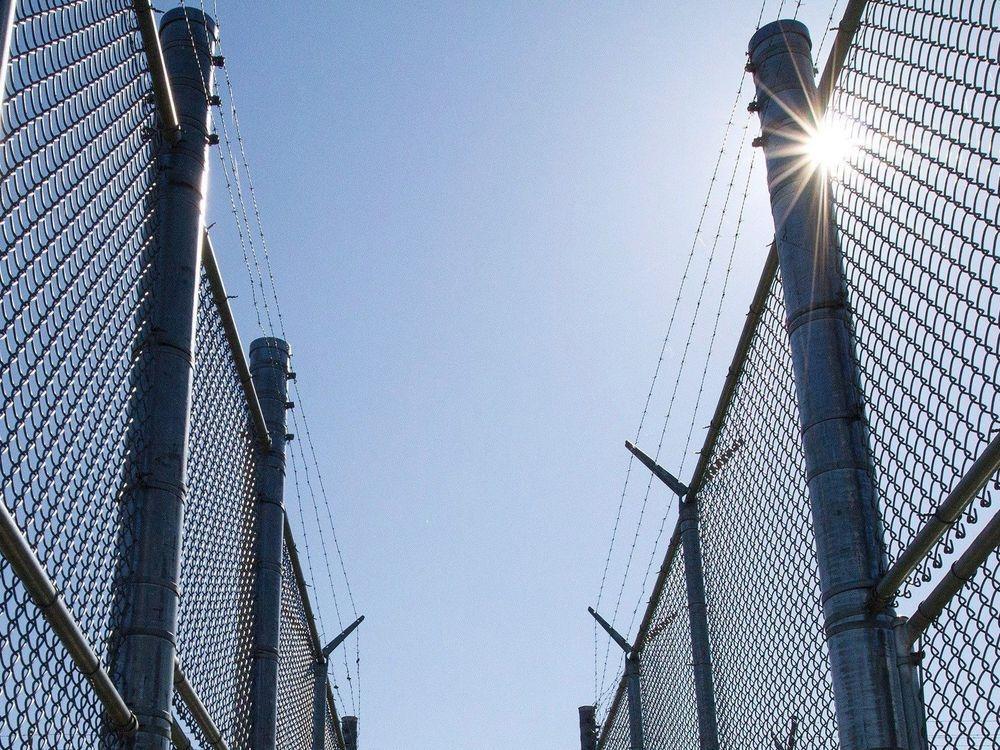
Neither Bell Canada nor the Ontario government will say how much money they made from a jail phone system that charged what lawyers describe as “exorbitant” rates for inmate calls over eight years. Fences with razor wire are shown at Collins Bay Institution in Kingston, Ont., on Tuesday, May 10, 2016.
Neither Bell Canada nor the Ontario government will say how much money they made from a jail phone system that charged what lawyers describe as “exorbitant” rates for inmate calls over eight years.
Bell operated the Offender Telephone Management System from 2013 to 2021 — which allowed inmates to only place collect calls — at a flat rate of $1 for local calls, but about $1 per minute plus a $2.50 connection fee for long-distance calls, according to a recent Appeal Court decision.
The rates were four times higher than those charged to inmates in other provinces, a lower court judge found. The new phone system now in place under a different company includes long-distance rates of a few cents a minute.
As well, the province took a commission on the money Bell made from those calls — which the court said numbered about 15,000 a day. The government declined to provide the amount collected or explain why it collected a commission, in response to queries from The Canadian Press.
But a request for proposals for the phone system, issued in 2012 under the Liberal government of the day, called for proponents to include a monthly commission rate of “no less than 25 per cent of the gross revenue.”
“It makes me feel sick to my stomach,” former inmate Vanessa Fareau said of the profits generated from the phone calls.
“Most people are calling their loved ones … Their loved ones didn’t commit a crime. You know what I mean? And this is who ends up paying for these phone bills and having to go into debt, having to struggle financially.”
Fareau has been incarcerated a few times in the Ottawa-Carleton Detention Centre — largely, she says, on remand or for breaches of probation — and needed to make calls to arrange child care and keep in touch with her kids. She alleges her calls were subject to long distance rates as she lives on the Quebec side of the National Capital Region.
Fareau is one of two representative plaintiffs in a proposed class-action lawsuit against Bell and the province. The other is Ransome Capay, the father of Adam Capay, an Indigenous man held in solitary confinement in northern Ontario jails for more than four years.
Capay frequently spoke with his son while he was in solitary, with the charges from the collect calls leading to phone bills between $250 and $500 — some over $1,000, he wrote in an affidavit.
“I live on the Lac Seul reserve and my son was being held in Kenora and Thunder Bay,” Capay wrote. “Phone calls were the only way to maintain basic contact with my son over the 4.5 years he was held in solitary confinement.”
More than 70 per cent of the people in Ontario’s correctional facilities are on remand — accused but not convicted of a crime, awaiting bail or trial — according to a 2019 auditor general report.
The recent Appeal Court ruling on the proposed class action put a temporary stay on the case. The ruling said the case should instead go before the Canadian Radio-television and Telecommunications Commission to assess “the reasonableness of the rates.”
If the CRTC decides it doesn’t have jurisdiction, the case could go back to the courts, the judges ruled.
Lawyer David Sterns said he and his team will pursue the case to the end, no matter the venue.
“You can’t get family members to, in a sense, subsidize the government because they have relatives who are incarcerated,” he said in an interview.
“The telephone lines are a lifeline for prisoners’ mental health. You can’t bring a cellphone into a prison, and so the only way you can get to talk to your family and loved ones is by using the Bell system, and Bell could effectively charge them whatever they wanted to charge them and they would still have demand, because when you’re desperate, you pay whatever you have to pay.”
The proposed class action seeks more than $150 million in damages and restitution equal to the money paid by those affected.
“To maintain phone contact with family and the outside world, prisoners had one option, and one option only: collect calls to landlines at exorbitant and unconscionable prices extracted from anyone who accepted the calls or otherwise paid for them,” lawyers argue in the statement of claim.
The claims have not been proven in court.
Bell Canada largely directed all questions about the phone system and ensuing court case to the province.
“The provincial government sets the terms of service for the calling system provided in Ontario correctional facilities,” a spokesperson wrote in a statement.
Fareau said she bristles whenever she sees the Bell Let’s Talk mental-health campaign.
“People who are incarcerated are at their lowest point in their mental health, lowest, and you’re taking advantage of them by having them or their loved ones be overcharged for collect calls on phone calls that don’t even work, function properly,” she said, describing spotty or low-quality service at times.
“They should be ashamed.”
In about May 2020 the phone system was changed to allow inmates to make prepaid calls, instead of just collect, which the lawyers argue shows Bell and the government had the ability to do that since 2013.
Solicitor General Michael Kerzner wrote in a statement that updating the phone system, including the new lower rates, is part of modernizing the justice system.
“Telephone communication between inmates and their families is important for their overall well-being and eventual reintegration back into our communities, and these changes will help do exactly that,” he wrote.






